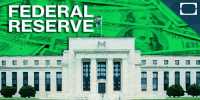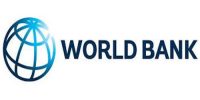The International Bank for Reconstruction and Development (IBRD), commonly referred to as the World Bank, is an international financial institution whose purposes include assisting the development of its member nation’s territories, promoting and supplementing private foreign investment and promoting long-range balance growth in international trade.
The World Bank was established in December 1945 at the United Nations Monetary and Financial Conference in Bretton Woods, New Hampshire. It opened for business in June 1946 and helped in the reconstruction of nations devastated by World War it Since the 1960s the World Bank has shifted its focus from the advanced industrialized nations to developing third-world countries.
The following objectives are assigned by the World Bank:
(1) To provide long-run capital to member countries for economic reconstruction and development.
(2) To induce long-run capital investment for assuring Balance of Payments equilibrium and balanced development of international trade.
(3) To provide a guarantee for loans granted to small and large units and other projects of member countries.
(4) To ensure the implementation of development projects so as to bring about a smooth transference from a war-time to peace-economy.
(5) To promote capital investment in member countries.
Criticism of the World Bank
Transparency: It doesn’t reveal on a deal to deal basis at what interest rate is it lending. To which countries is it lending cheap. Another major complaint about the World Bank is its role in causing high debt among developing countries.
Control: It’s fair to say the developed world control the World Bank. In a way it should be like that because most of the money does come from the developed world, but, it’s this money that is used by developed world to get bargains with the money borrowers (which is mostly poor countries who either is in immediate need of money or due to its had practices would borrow from world bank).
Enforcer/Manipulator: After making the borrower addicted and dependent on its money, World Bank interfere with government projects
Climate: The World Bank’s function in the global weather change finance structural design has also caused much disagreement. Civil society groups see the Bank as unfit for responsibility in climate finance because of the conditionality’s and consultative services generally attached to its loans.
Engage in Private Sectors: There are also concerns that the World Bank working in a joint venture with the private sector might demoralize the responsibility of the state as the key contributor of necessary goods and services, such as healthcare and education, resulting in the deficit of such services in countries badly in need of them.
Social and Environment: With the World Bank, there are concerns about the types of development projects funded. Many transportation and construction projects financed by the World Bank Group have social and environmental implications for the populations in the pretentious areas and disapproval has centered on the moral issues of financial support such projects. For example, World Bank-funded construction of hydroelectric dams in various countries has resulted in the dislocation of native peoples of the area.
Finally, we can say, the World Bank says its intention is to aid poor people, calling this global development, but in realism, the effects of its policies are that the rich people get richer on consecutively up debt, cheap labor and paying as diminutive tax as probable, while the poor people get poorer as their jobs and public services are cut to pay just the interest on the debt owed to the World Bank.














